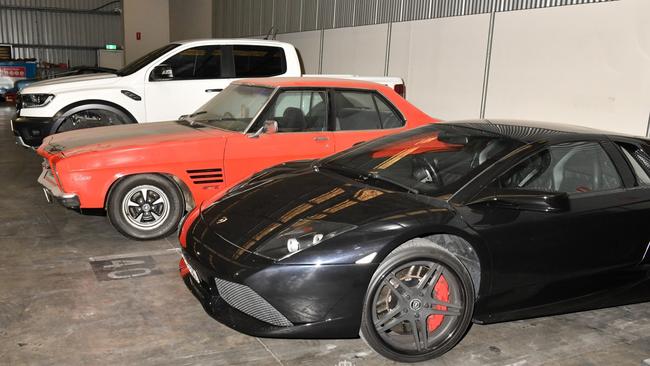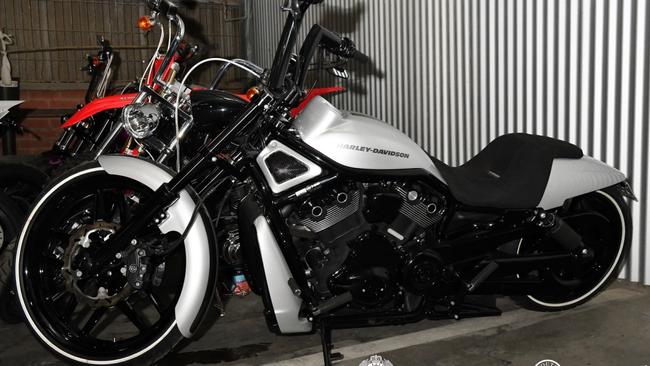Supreme Court hears opposition to asset orders as Ironside freeze tally hits $30m
Three houses, more than $100,000 in cash and numerous vehicles have been added to the Ironside asset haul as a battle plays out in the Supreme Court.
SA News
Don't miss out on the headlines from SA News. Followed categories will be added to My News.
Assets frozen or restrained as part of Operation Ironside have reached $30m as the battle over an order forcing defendants to disclose their assets plays out in the Supreme Court.
In the two months since The Advertiser revealed the extent of the seizure campaign, inquiries have revealed three more properties, as well as hundreds of thousands of dollars in cash and vehicles have been seized.
The orders are not being made without opposition.
Justice Greg Parker has reserved his decision over a challenge to orders requested by the Director of Public Prosecution. The DPP wants to make restraining orders on all an accused’s assets, whether police know what they are or not. The DPP has also tried to order all accused people to list their assets.
Scott Henchliffe QC, acting for Ironside accused Dalibor Drazetic and a second man who cannot be named for legal reasons, launched the challenge in the aftermath of sweeping arrests in June.
At the time, police made applications for the seizure of millions in cars, properties, jewellery, motorbikes and cash belonging to Ironside accused in the Supreme Court.
Prosecutors also requested orders requiring accused to list their assets or face a penalty.
Lawyers and barristers for a number of Ironside accused delayed their own arguments against the order while Mr Henchliffe’s argument played out before Justice Parker.
On Monday, Mr Henchliffe argued that an order restraining all assets, regardless of whether they could be specified, could hamper the ability for accused to pay their legal team.
It is known as a Mareva order, and in other states the court can freeze the entirety of an accused’s assets while legal proceedings are under way.
Mr Henchliffe argued that the South Australian criminal assets forfeiture Act did not give Justice Parker authority to make the order.
DPP Martin Hinton QC and Mr Henchliffe went deep into the history of the act, looking for the intent of parliament when the act was passed.
Mr Henchliffe said an order by the court requiring the accused to list their assets could encroach on their privilege not to self-incriminate themselves by showing unexplained wealth.


Mr Hinton conceded that the order as it initially stood, which involved the information being sent directly to the DPP and police would breach the privilege.
But he said a different order could be created which would see the list of assets instead given to the crown solicitor.
“If you shut the door on the information going to the DPP or the investigating officer, you shut the door on the privilege,” he said.
“If you shut the door on the privilege your can make the order.”
Justice Parker reserved his decision and will hand down a judgment on a date yet to be set.
Last week the first forfeiture orders were made since Ironside began, with several hundred thousand dollars’ worth of assets belonging to convicted drug trafficker John Steven Stephenson surrendered to the court.
More Coverage
Originally published as Supreme Court hears opposition to asset orders as Ironside freeze tally hits $30m




